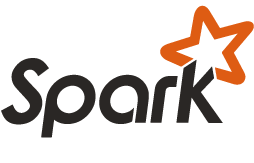Machine Learning Library (MLlib) Guide
MLlib is Spark’s machine learning (ML) library. Its goal is to make practical machine learning scalable and easy. It consists of common learning algorithms and utilities, including classification, regression, clustering, collaborative filtering, dimensionality reduction, as well as lower-level optimization primitives and higher-level pipeline APIs.
It divides into two packages:
spark.mllibcontains the original API built on top of RDDs.spark.mlprovides higher-level API built on top of DataFrames for constructing ML pipelines.
Using spark.ml is recommended because with DataFrames the API is more versatile and flexible.
But we will keep supporting spark.mllib along with the development of spark.ml.
Users should be comfortable using spark.mllib features and expect more features coming.
Developers should contribute new algorithms to spark.ml if they fit the ML pipeline concept well,
e.g., feature extractors and transformers.
We list major functionality from both below, with links to detailed guides.
spark.mllib: data types, algorithms, and utilities
- Data types
- Basic statistics
- Classification and regression
- Collaborative filtering
- Clustering
- Dimensionality reduction
- Feature extraction and transformation
- Frequent pattern mining
- Evaluation metrics
- PMML model export
- Optimization (developer)
spark.ml: high-level APIs for ML pipelines
spark.ml programming guide provides an overview of the Pipelines API and major concepts. It also contains sections on using algorithms within the Pipelines API, for example:
- Feature extraction, transformation, and selection
- Decision trees for classification and regression
- Ensembles
- Linear methods with elastic net regularization
- Multilayer perceptron classifier
Dependencies
MLlib uses the linear algebra package Breeze, which depends on netlib-java for optimised numerical processing. If natives libraries1 are not available at runtime, you will see a warning message and a pure JVM implementation will be used instead.
Due to licensing issues with runtime proprietary binaries, we do not include netlib-java’s native
proxies by default.
To configure netlib-java / Breeze to use system optimised binaries, include
com.github.fommil.netlib:all:1.1.2 (or build Spark with -Pnetlib-lgpl) as a dependency of your
project and read the netlib-java documentation for your
platform’s additional installation instructions.
To use MLlib in Python, you will need NumPy version 1.4 or newer.
Migration guide
MLlib is under active development.
The APIs marked Experimental/DeveloperApi may change in future releases,
and the migration guide below will explain all changes between releases.
From 1.4 to 1.5
In the spark.mllib package, there are no break API changes but several behavior changes:
- SPARK-9005:
RegressionMetrics.explainedVariancereturns the average regression sum of squares. - SPARK-8600:
NaiveBayesModel.labelsbecome sorted. - SPARK-3382:
GradientDescenthas a default convergence tolerance1e-3, and hence iterations might end earlier than 1.4.
In the spark.ml package, there exists one break API change and one behavior change:
- SPARK-9268: Java’s varargs support is removed
from
Params.setDefaultdue to a Scala compiler bug. - SPARK-10097:
Evaluator.isLargerBetteris added to indicate metric ordering. Metrics like RMSE no longer flip signs as in 1.4.
Previous Spark versions
Earlier migration guides are archived on this page.
-
To learn more about the benefits and background of system optimised natives, you may wish to watch Sam Halliday’s ScalaX talk on High Performance Linear Algebra in Scala. ↩
